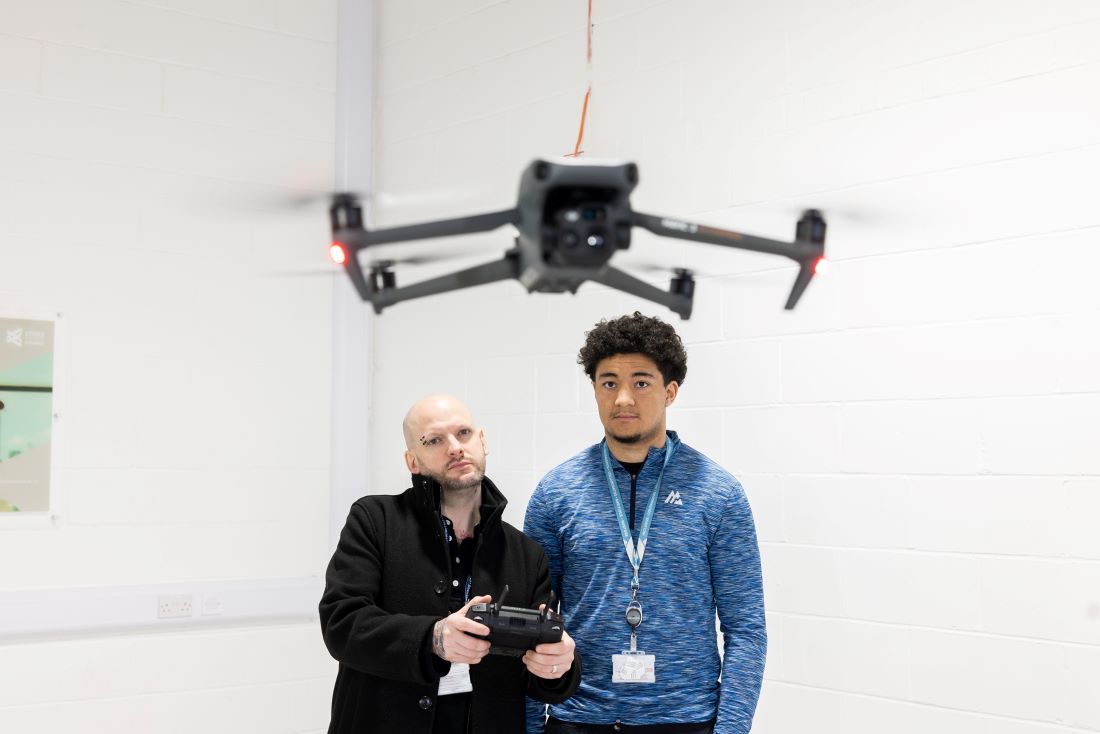Leveraging Technology to Enhance Educator Engagement and Retention

The UK has been facing a shortage of educators for several years, with reports indicating a shortfall in meeting recruitment targets for education institutions. There is also often a substantial number of tutors and educators who leave the profession within the first five years of their careers due to high-stress levels and pressure. For Further Education educators, mounting workloads and unfulfilling administrative work, in particular, are leading to poor retention of staff, as highlighted in a recent report. It is now up to educational leaders and decision-makers to address the issues causing educator retention to decline, this is where Education Technologies (EdTech) can help tackle the situation.
Lecturers and tutors once needed to manage all aspects of their students’ learning, dealing with intense workloads, and changing educational standards. EdTech can now provide immense support by easing these workloads, helping to reduce working hours, and improving overall job satisfaction.
The high employee turnover rates are resulting in inconsistencies in the quality of education, and consequently, the student’s academic achievements. Research suggests that effective and stable teaching is crucial for student success, and disruptions in staffing can hinder academic progress.
Many overworked educators are stressed and burnt out from the large workloads that include student monitoring, lesson planning, resource grading, developing curriculum, and supporting their students. This workload can have a profound impact on their overall morale and create a cycle where experienced lecturers leave, increasing the pressures and demands on remaining staff and further exacerbating retention issues.
There is no doubt that the vicious circle of increased workloads, high employee turnover, and educator retention is negatively impacting teachers’ well-being, as well as the students’ learning. Educational institutions must prioritise investing in their employees and staff, encouraging their professional development, and supporting their workloads by deploying enhanced EdTech within the classroom. As technology becomes more frequently used in education, there is no doubt that it will have a major impact on educational institutions and teaching in a range of ways, becoming an essential part of educator recruitment and retention.
The Impact of EdTech on Educators’ Work-Life Balance
The integration of EdTech into classrooms has significantly impacted lecturers’ work-life balance. EdTech tools, such as learning management systems (LMS), digital grading platforms, and virtual classrooms streamline administrative tasks, thereby reducing the time tutors spend on administrative activities.
For instance, automated grading systems save hours that would otherwise be dedicated to manually marking papers, allowing assessors to focus more on lesson planning and student engagement. Additionally, communication tools facilitate better interaction with students and parents, which in turn can help improve transparency and prevent misunderstandings. However, the constant connectivity also blurs the lines between work and personal life, as educators might find themselves responding to emails and planning lessons during their off-hours. Balancing these benefits and drawbacks is crucial for maintaining a healthy work-life equilibrium.
How Technology is Changing the Teaching Landscape
Technology is reshaping the teaching landscape by introducing new methods of teaching and engagement. Interactive tools like front-of-classroom digital displays and virtual reality provide dynamic and immersive learning experiences for students. These technologies cater to diverse learning and teaching styles, making education more inclusive and effective for everyone. With EDLA Interactive Displays, educators now have a plethora of apps and clever tools at their fingertips, enabling them provide more exciting ways of teaching and a more visual and engaging experience, rather than the traditional PowerPoint and note-taking approach that previous generations experienced. This can ultimately help improve tutor and student engagement and joy around teaching, through creative and exciting teaching methods. Moreover, the rise of online courses and blended learning models has expanded access to education, enabling students to learn at their own pace and on their schedule.
This shift also transforms the educator’s role from a traditional knowledge provider to a facilitator and guide, encouraging collaborative and student-centred learning environments. To adapt to this, tutors must be proficient in digital tools and adaptable to rapid technological advancements, highlighting the importance of ongoing professional development and training.
Using EdTech to Address Educator Shortages in Underserved Areas
Tutor shortages in underserved areas pose a significant challenge to educational equity. EdTech offers a promising solution by bridging the gap between students and quality education. Virtual classrooms and online tutoring services can bring experienced educators to remote or economically disadvantaged regions, providing students with access to a wider range of subjects and expertise.
Additionally, EdTech platforms can support local educators by offering resources and lesson plans tailored to specific needs, reducing the burden on under-resourced educational institutions. Through asynchronous learning models, students in underserved areas can access recorded lessons and interactive materials at their convenience, ensuring continuous learning despite local assessor shortages.
The Role of Professional Development in Tutor Retention
Professional development is crucial for educator retention, as it enhances job satisfaction and career progression. Effective professional development programs equip lecturers with the latest pedagogical strategies, classroom management techniques, and technological competencies. Continuous learning opportunities help tutors feel valued and supported, reducing burnout, and increasing retention rates.
Professional development also fosters a collaborative culture among educators, encouraging the sharing of best practices and mutual support. In the context of EdTech, professional development is essential for helping educators integrate new technologies into their teaching practices confidently, and effectively. Ensuring that they are able to develop professionally, and have the skills needed to use the latest technology to their full potential is important in order for educational institutions to get the best return on their investments, and to provide the students with the best possible learning experience.
Well-designed professional development programs that address educators’ evolving needs can significantly improve their motivation and commitment to the profession. However, tutors must be provided with accessible learning opportunities to improve their skills and understanding of EdTech. Educational institutions therefore need to ensure that they provide sufficient training, support, and time for their teachers to undergo any necessary courses to encourage their professional development.
How EdTech can Improve Educator job Satisfaction
EdTech can substantially enhance educator job satisfaction by simplifying administrative tasks, facilitating personalised learning, unlocking unlimited teaching possibilities and enabling professional growth. Tools that automate grading and attendance tracking free up valuable time for tutors to focus on teaching and interacting with students. Personalised learning platforms allow assessors to tailor curriculums to each student’s needs, leading to more effective teaching and improved student outcomes. Interactive displays can provide new and easier ways to deliver engaging and collaborative lessons with the use of apps, visual and interactive tools.
Moreover, EdTech provides opportunities for continuous professional development through online courses and webinars, enabling educators to stay current with educational trends and innovations. By reducing administrative burdens enhancing instructional capabilities, and supporting professional growth, EdTech contributes to a more fulfilling and rewarding experience.
The integration of EdTech in education holds the potential to significantly improve educator retention and recruitment. By addressing key challenges such as work-life balance, resource limitations in underserved areas, and the need for continuous professional development, EdTech can create a more supportive and satisfying teaching environment.
By Nicola Pearce, Head of Education, BenQ











Responses